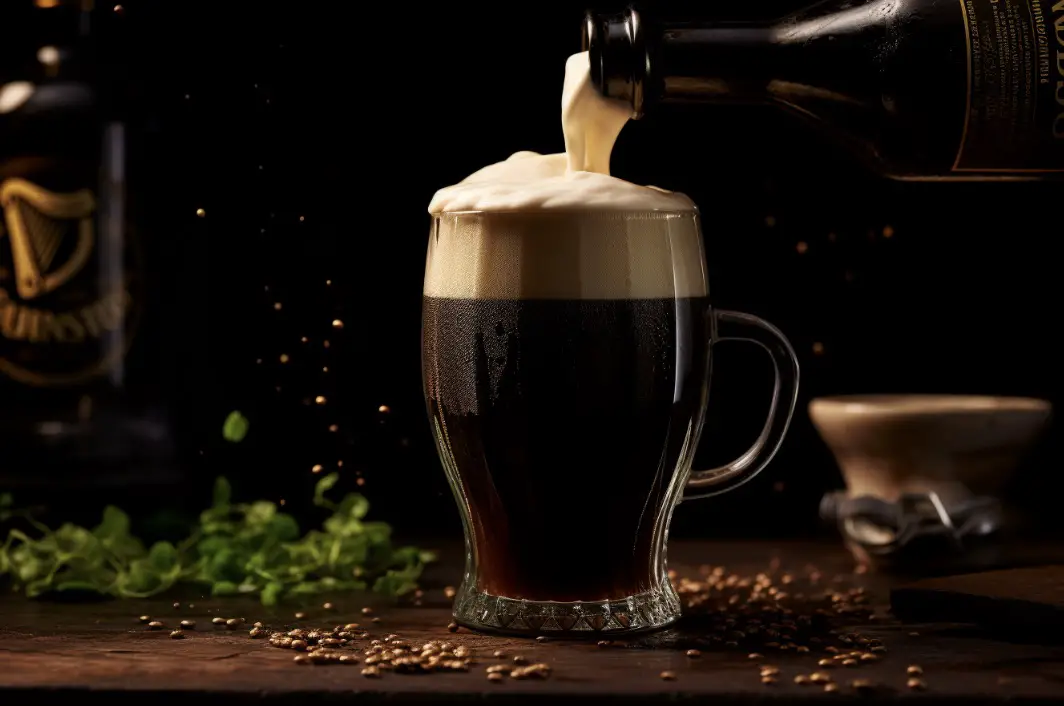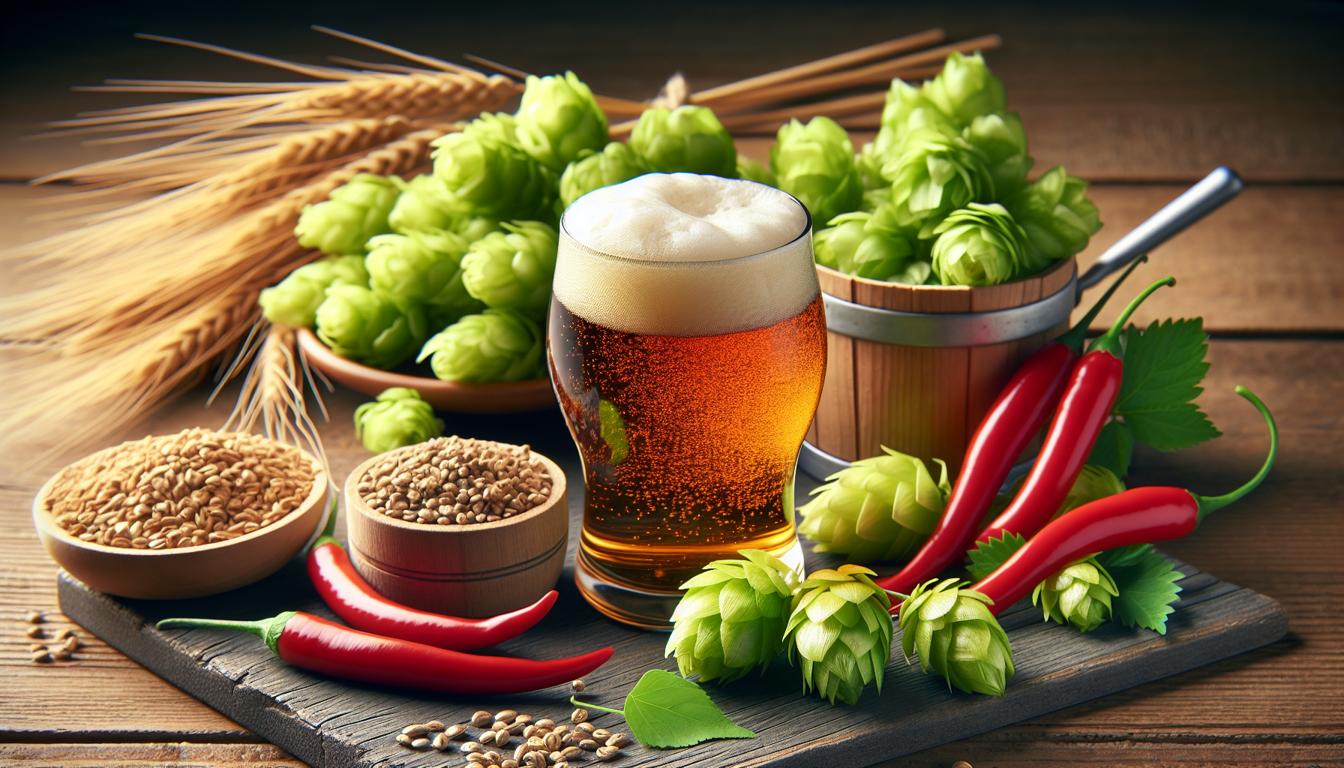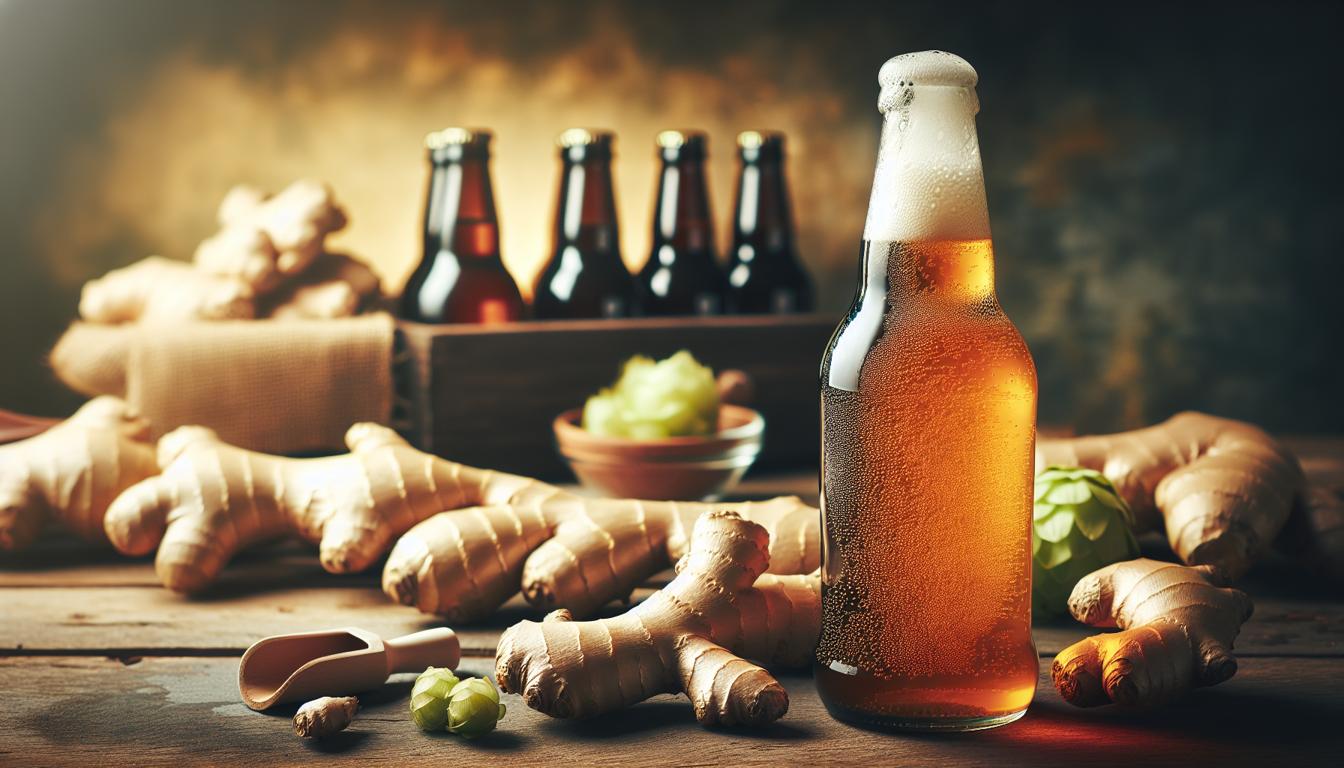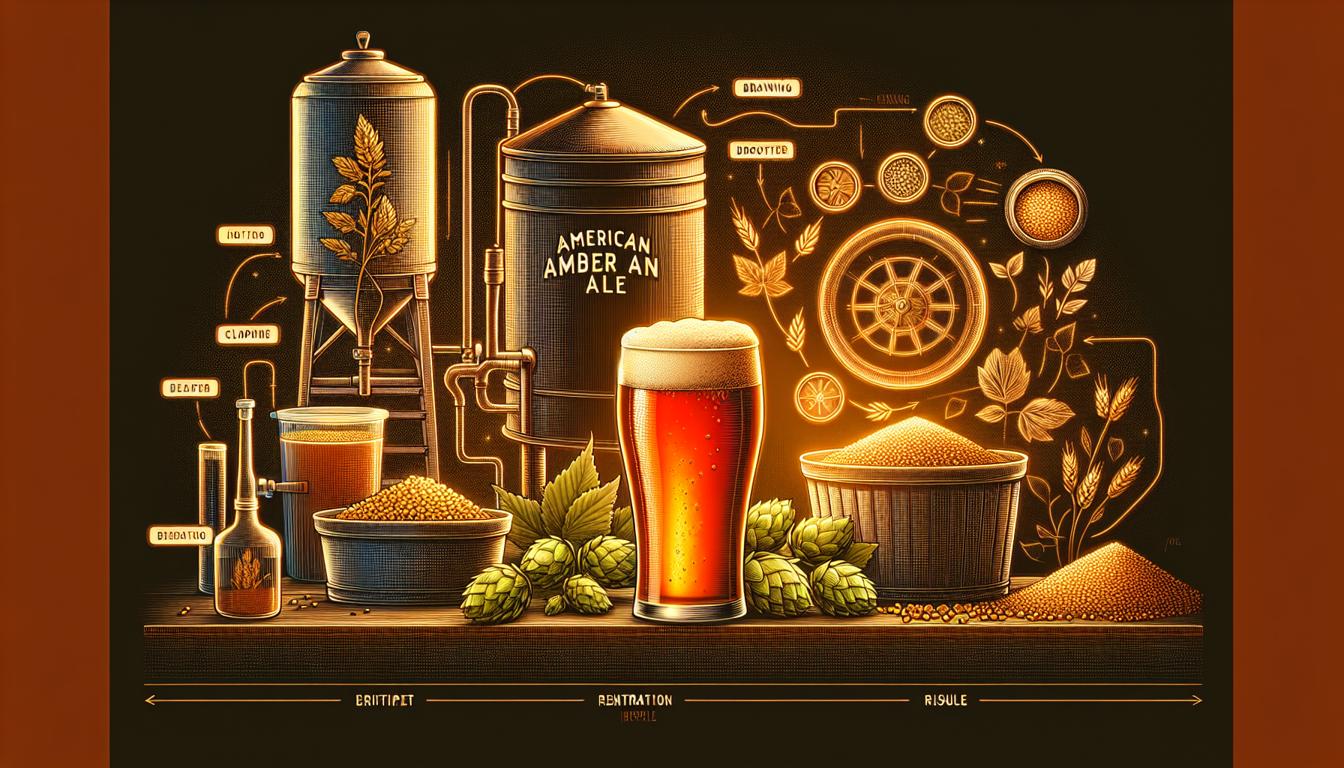Barley wine is a rich, strong beer that has been adored by beer lovers for centuries. Characterized by its high alcohol content and complex flavor profile, it is often considered the pinnacle of brewing.
However, there are numerous alternatives to barley wine that offer similarly memorable tasting experiences.
In this blog post, we will explore five such alternatives: Quadrupel, Old Ale, Doppelbock, Eisbock, and Imperial Stout.
Each of these styles has its own unique characteristics and flavor profiles, making them worthy contenders for those seeking an alternative to barley wine.
1. Quadrupel
A Rich and Complex Belgian Brew
Quadrupel, or “Quad” for short, is a Belgian-style ale that is known for its rich, complex flavors and high alcohol content. Like barley wine, Quadrupel is typically brewed with a large amount of malt, giving it a strong, malty backbone.
The flavors in a Quad can range from dark fruit, such as figs and plums, to caramel, chocolate, and even a hint of spice. This style of beer is often aged in oak barrels, which can impart additional flavors and complexity.
As you sip a Quadrupel, you’ll notice that the mouthfeel is smooth and velvety, with a slightly sweet finish. This beer style is perfect for those looking to enjoy a similar experience to barley wine but with a distinct Belgian twist.
2. Old Ale
Traditional English Ale with a Nostalgic Charm
Old Ale is a traditional English beer style that shares many similarities with barley wine. Both styles have a high alcohol content and are often aged for an extended period, which allows the flavors to meld and develop.

Old Ales are characterized by their dark, malty and fruity flavors, often with notes of toffee, caramel, and molasses. Some examples may also have a slight oxidative quality, which can add a layer of complexity and intrigue to the beer.
When you take a sip of an Old Ale, you’ll be transported back in time to the days of old English pubs and candlelit taverns. This beer style is perfect for those seeking an alternative to barley wine that showcases the rich history and tradition of English brewing.
3. Doppelbock
German Malty Indulgence
Doppelbock is a strong German lager that is known for its malty sweetness and rich, bready flavors. This beer style originated in Munich and was traditionally brewed by monks who needed a rich, hearty beer to sustain them during periods of fasting.
Doppelbocks are typically brewed with a high percentage of Munich malt, which gives them a deep amber to dark brown color and a strong malt aroma.
As you drink a Doppelbock, you’ll notice that the mouthfeel is silky and smooth, with flavors of toasted bread, caramel, and toffee.
While the flavor profile of a Doppelbock is quite different from that of a barley wine, it is still an excellent option for those seeking a malty, high-alcohol beer with plenty of character.
4. Eisbock
A Frozen German Delight
Eisbock is a unique and fascinating beer style that offers a completely different experience from barley wine. This German beer is made by freezing a Doppelbock and then removing the ice crystals that form, which concentrates the flavors and increases the alcohol content.
The result is a rich, full-bodied beer with a velvety mouthfeel and a warming sensation from the high alcohol content.
When you sip an Eisbock, you’ll be greeted with flavors of caramel, chocolate, and dark fruit, along with a subtle hint of alcohol heat. This beer style is perfect for those looking to explore a different side of high-alcohol beers and enjoy a truly unique tasting experience.
5. Imperial Stout
Bold and Robust with a Roasty Edge
Imperial Stout is a strong, dark beer that originated in England and was initially brewed for export to the Russian Imperial Court. This beer style is characterized by its bold, robust flavors, often with notes of chocolate, coffee, and dark fruit.
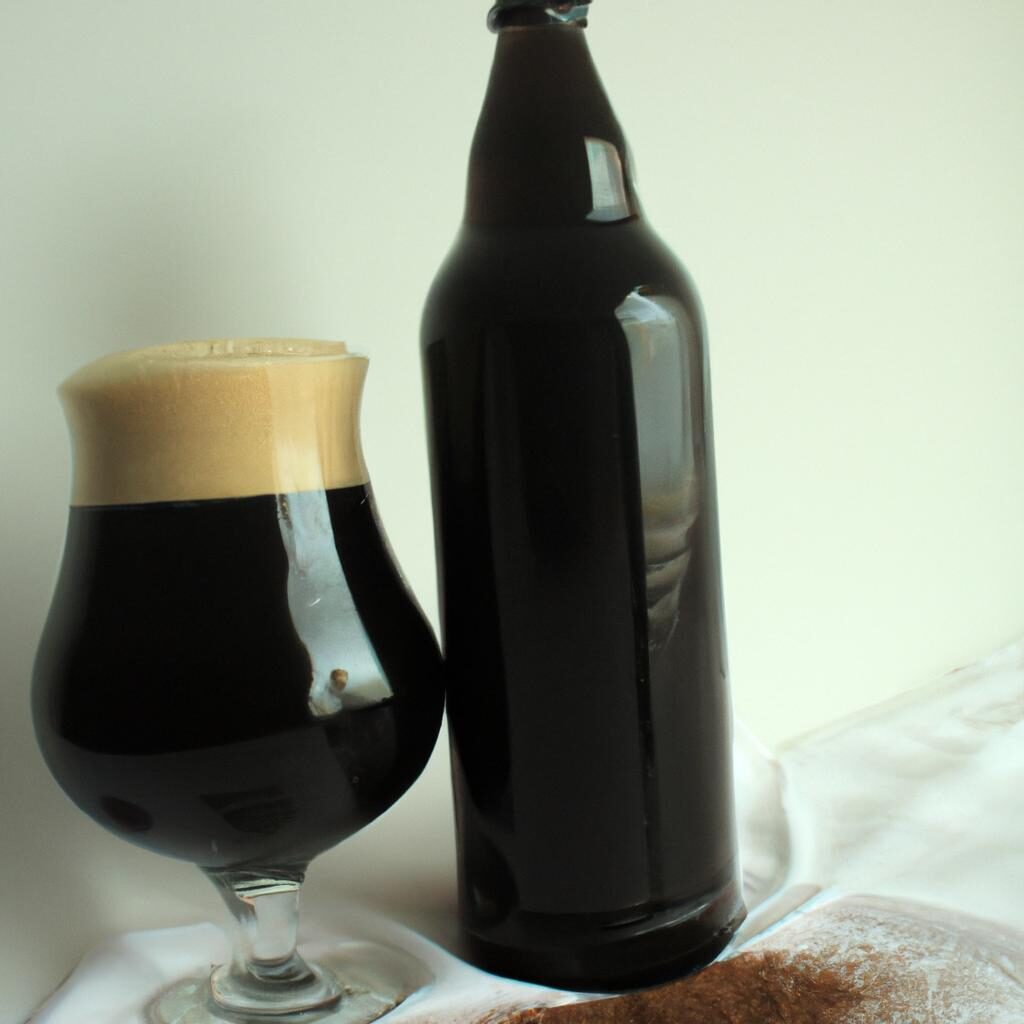
Like barley wine, Imperial Stout has a high alcohol content and can be aged for extended periods, which allows the flavors to develop and mature.
As you enjoy an Imperial Stout, you’ll notice that the mouthfeel is thick and creamy, with a lingering roasty bitterness on the finish.
This beer style is perfect for those seeking an alternative to barley wine that offers bold, intense flavors and a distinctive roasty edge.
Conclusion: The World Beyond Barley Wine
While barley wine is undoubtedly a beloved and revered beer style, there are numerous alternatives that offer equally memorable and enjoyable tasting experiences.
Quadrupel, Old Ale, Doppelbock, Eisbock, and Imperial Stout each have their own unique characteristics and flavor profiles, which make them excellent options for those seeking a departure from the traditional barley wine experience.
Personally, I would highly recommend exploring the rich and complex world of Quadrupel, as it offers a similar depth of flavor to barley wine but with a distinctly Belgian twist. However, the best way to discover your own favorite alternative is to taste and experiment with each of these styles. Happy tasting!
FAQs
What makes a barley wine different?
Barley wine is a strong and complex beer style that sets itself apart from other beers in a few ways. Firstly, it has a significantly higher alcohol content, typically ranging from 8% to 12% or even higher, resembling the strength of wine rather than traditional beer.
Additionally, barley wines often have a rich and full-bodied malt character, with a sweet and caramel-like flavor profile. They tend to be less carbonated and can exhibit a range of fruity, nutty, and even sherry-like notes. Unlike wines, barley wines are brewed using barley malt and hops, and they undergo fermentation by beer yeast.
Overall, the combination of high alcohol content, intense malt flavors, and unique brewing process distinguishes barley wine from other beer styles.
How is barley wine different from beer?
Barley wine is a type of beer, but it differs from traditional beer in several ways. Firstly, barley wine has a much higher alcohol content, typically ranging from 8% to 15% ABV (alcohol by volume), whereas most beers have an ABV of 4% to 7%.
Secondly, barley wine is characterized by its rich, malty sweetness and complex flavors, often resembling those of a fortified wine or a dessert wine. It tends to have a fuller body, higher residual sugars, and a more intense and robust flavor profile compared to regular beer.
Lastly, barley wine is usually aged for an extended period, allowing it to develop deeper complexities and mellow out over time.
What is a good substitute for barley wine in Christmas pudding?
A good substitute for barley wine in Christmas pudding could be a combination of apple juice and brandy or sherry. These alternatives can provide a similar depth of flavor and moisture to the pudding.
Does barley wine taste like beer?
Yes, barley wine does taste like beer, but it typically has a higher alcohol content and a more complex flavor profile. It often exhibits rich maltiness, fruity esters, and sometimes hop bitterness. The higher alcohol content gives it a warming sensation and a fuller body compared to traditional beer styles.
What can you use in place of barley wine?
In place of barley wine, you can consider using other strong and flavorful beers such as Belgian strong ales, imperial stouts, or strong ales. These beer styles often have similar characteristics to barley wine, with rich malt flavors, high alcohol content, and complex profiles. Additionally, fortified wines like port or sherry can also provide a similar depth and sweetness found in barley wine.
Why is barley wine a beer?
Barley wine is considered a beer because it is brewed using malted barley, water, yeast, and hops, which are the fundamental ingredients of beer. Despite its name, barley wine is not a wine but rather a strong beer. It typically has a high alcohol content, similar to that of wine, and is often aged like wine to develop complex flavors. The use of barley and the brewing process categorize it as a beer rather than a wine.

